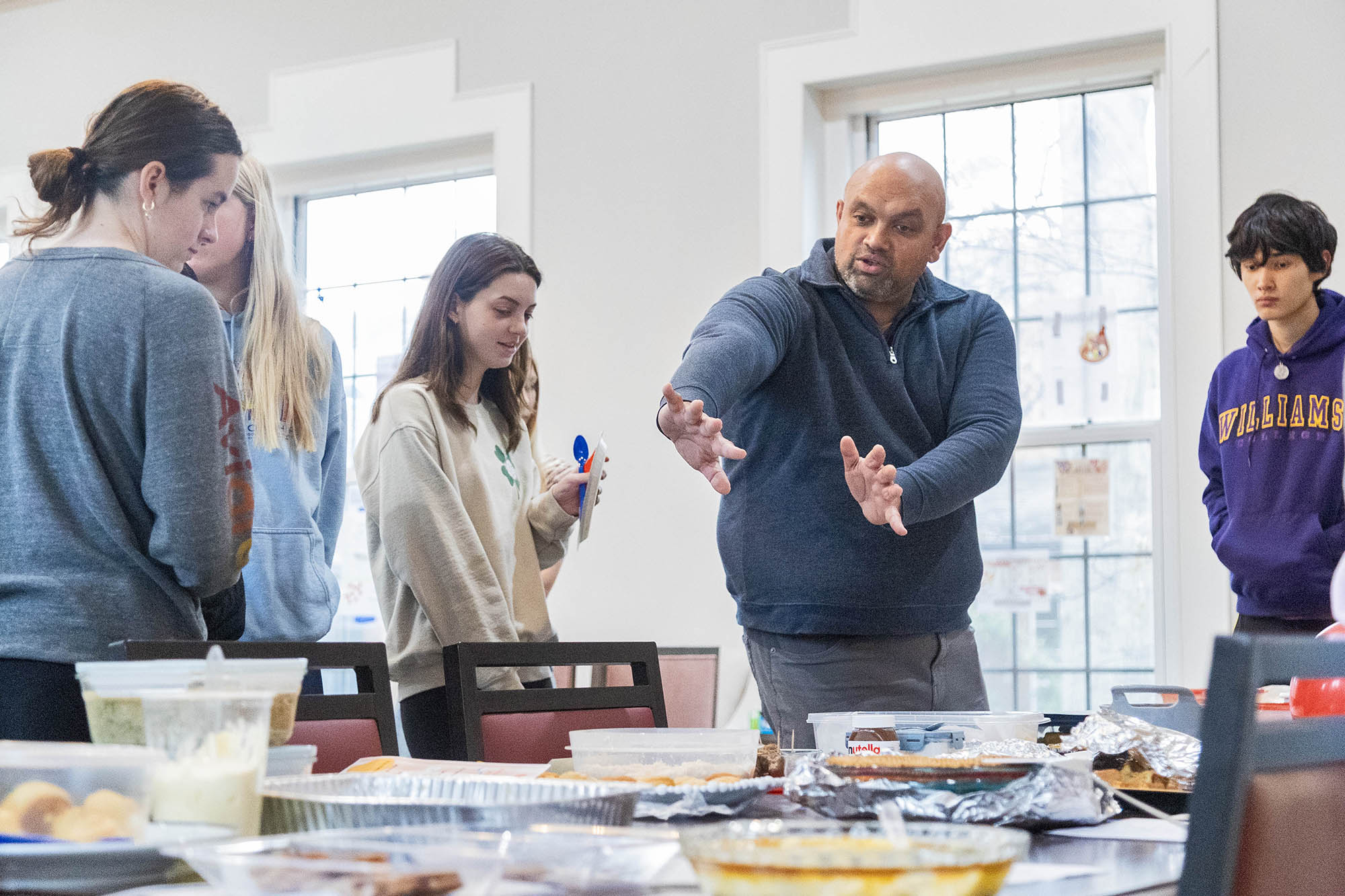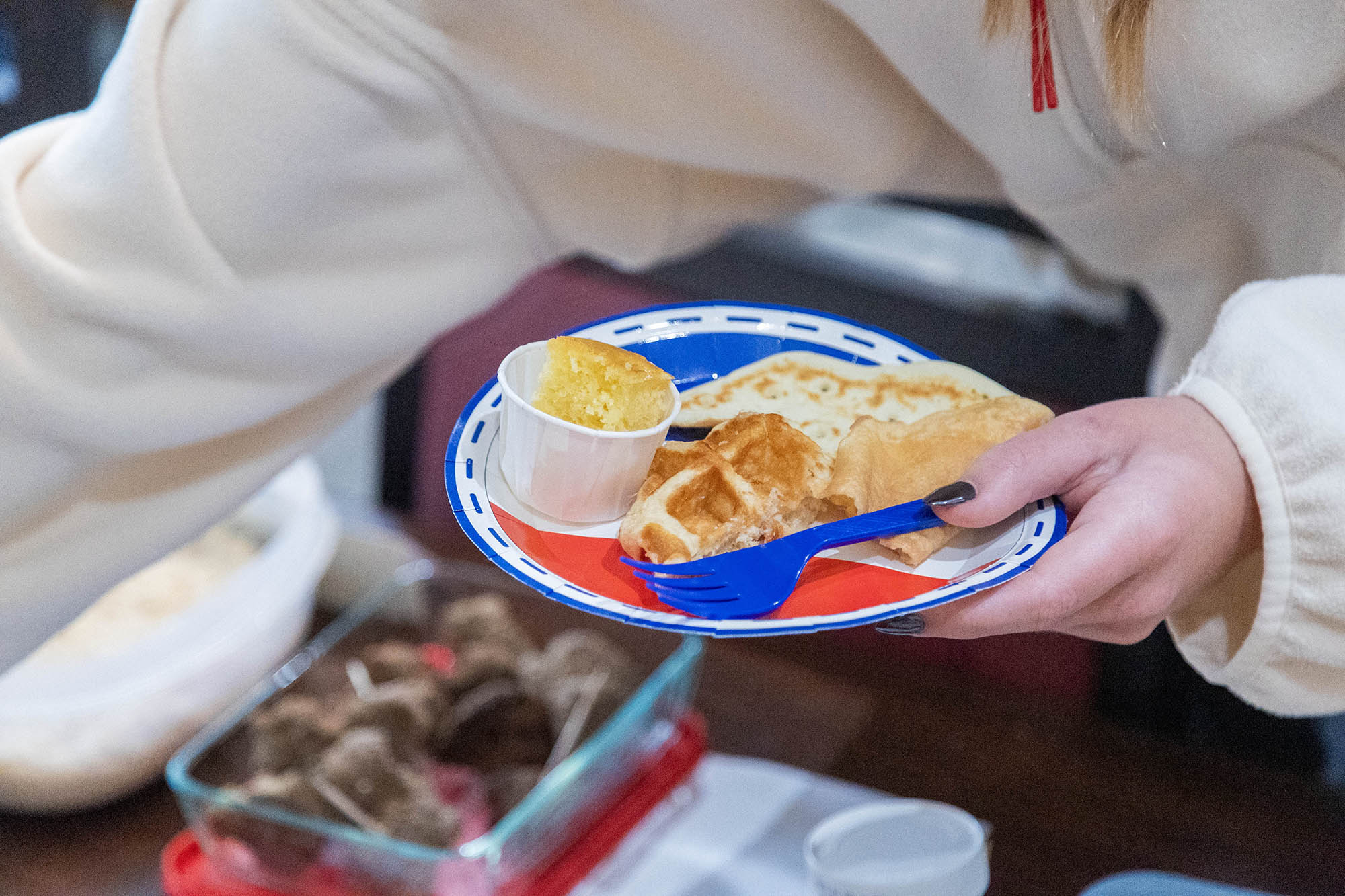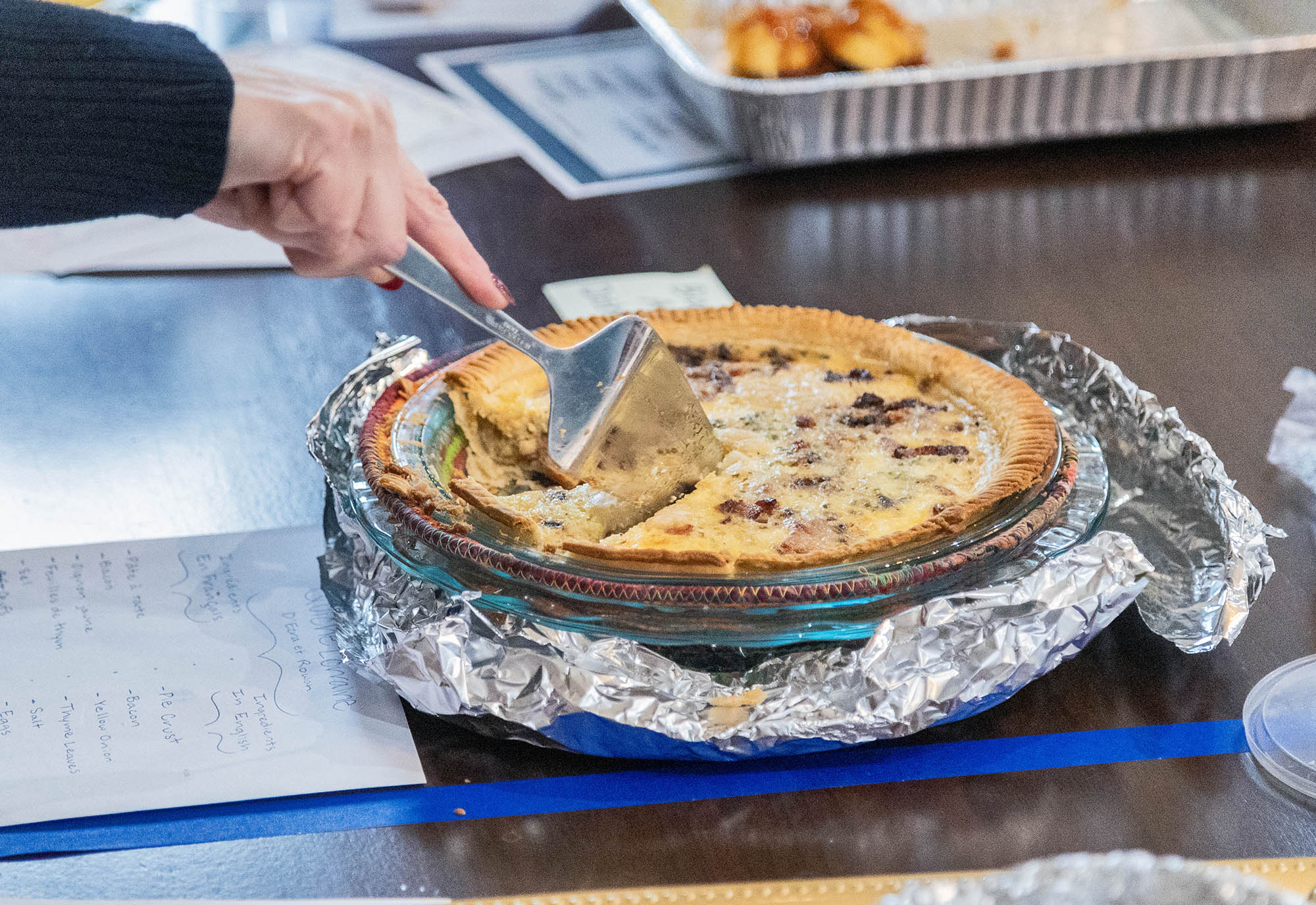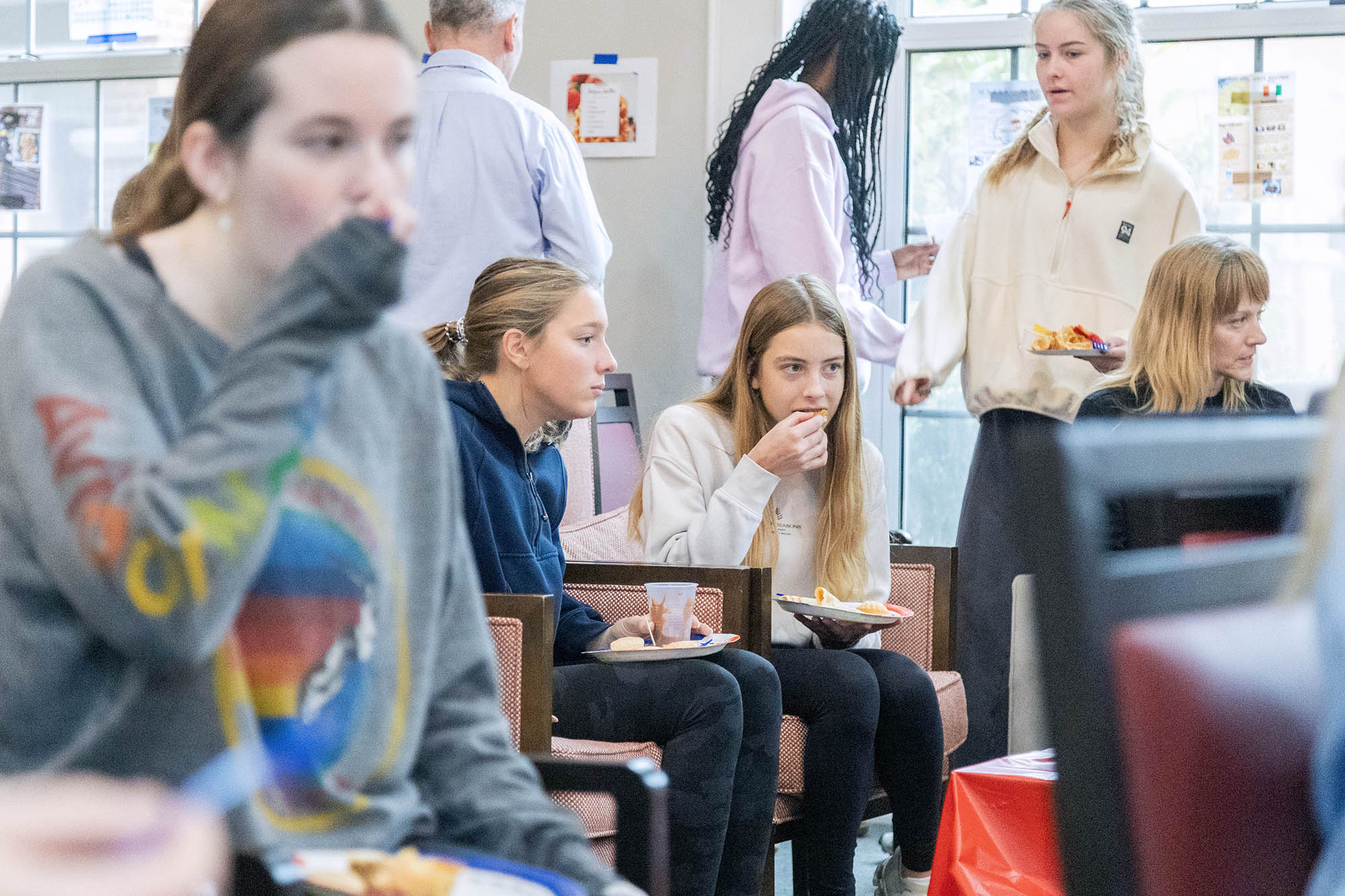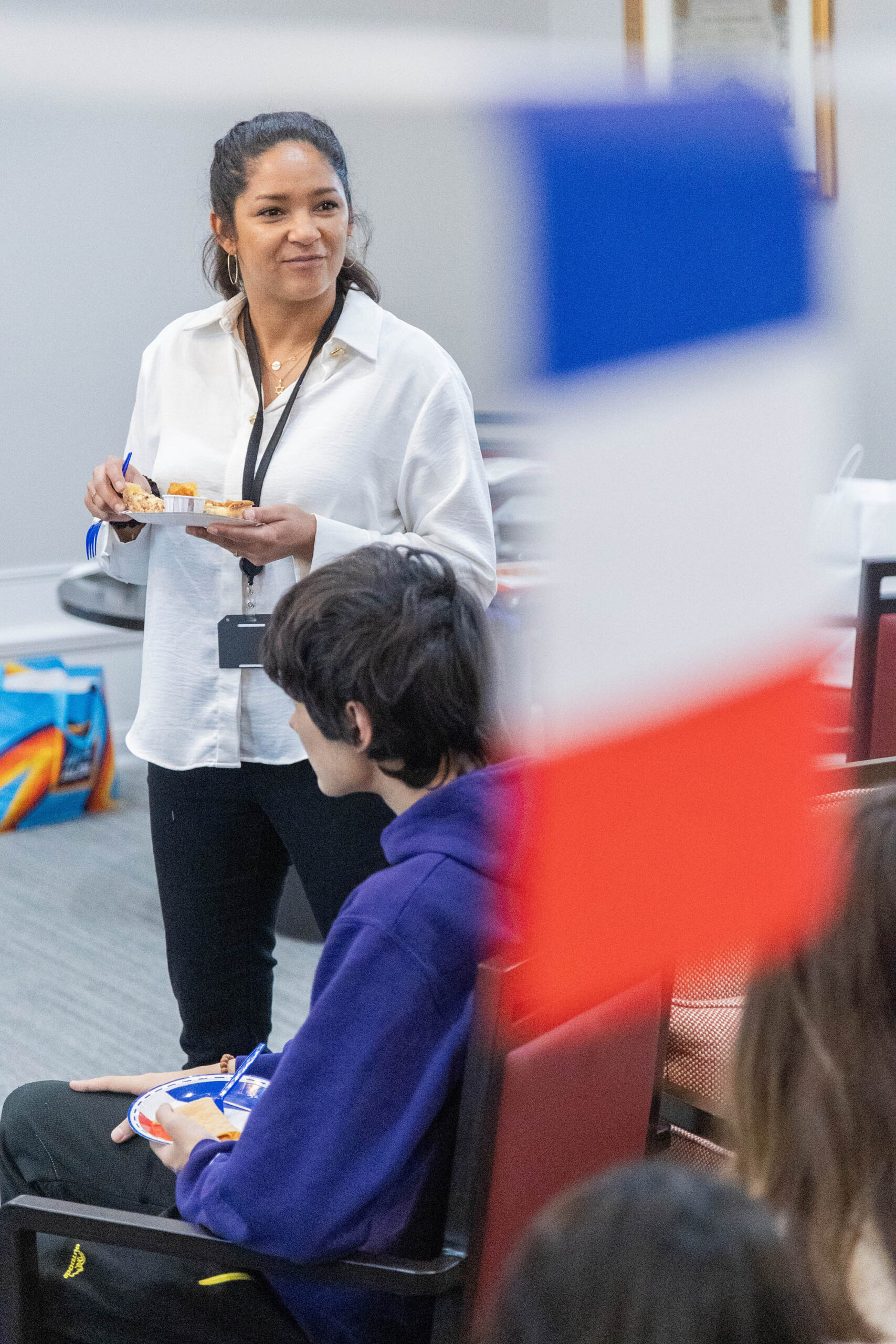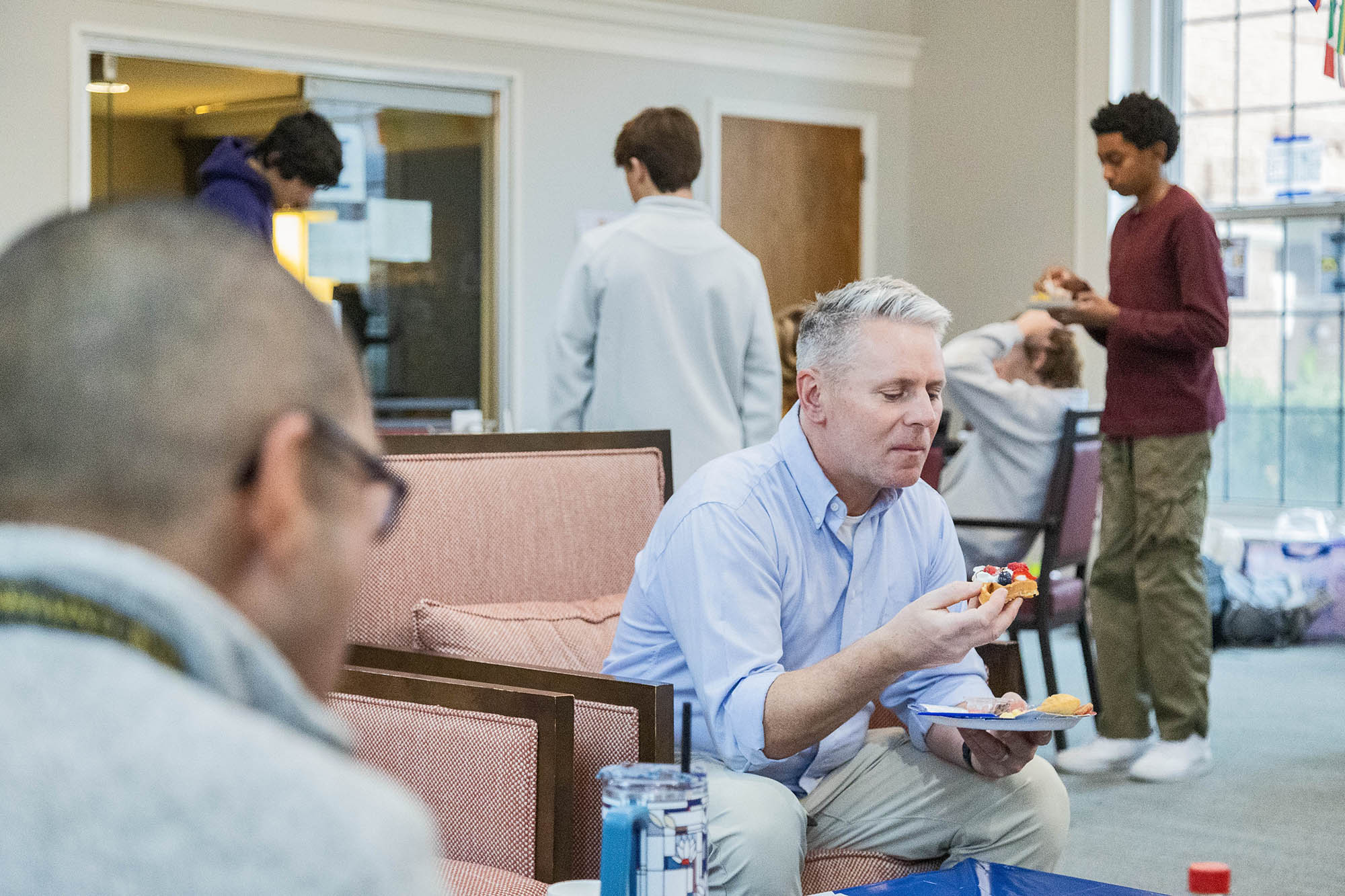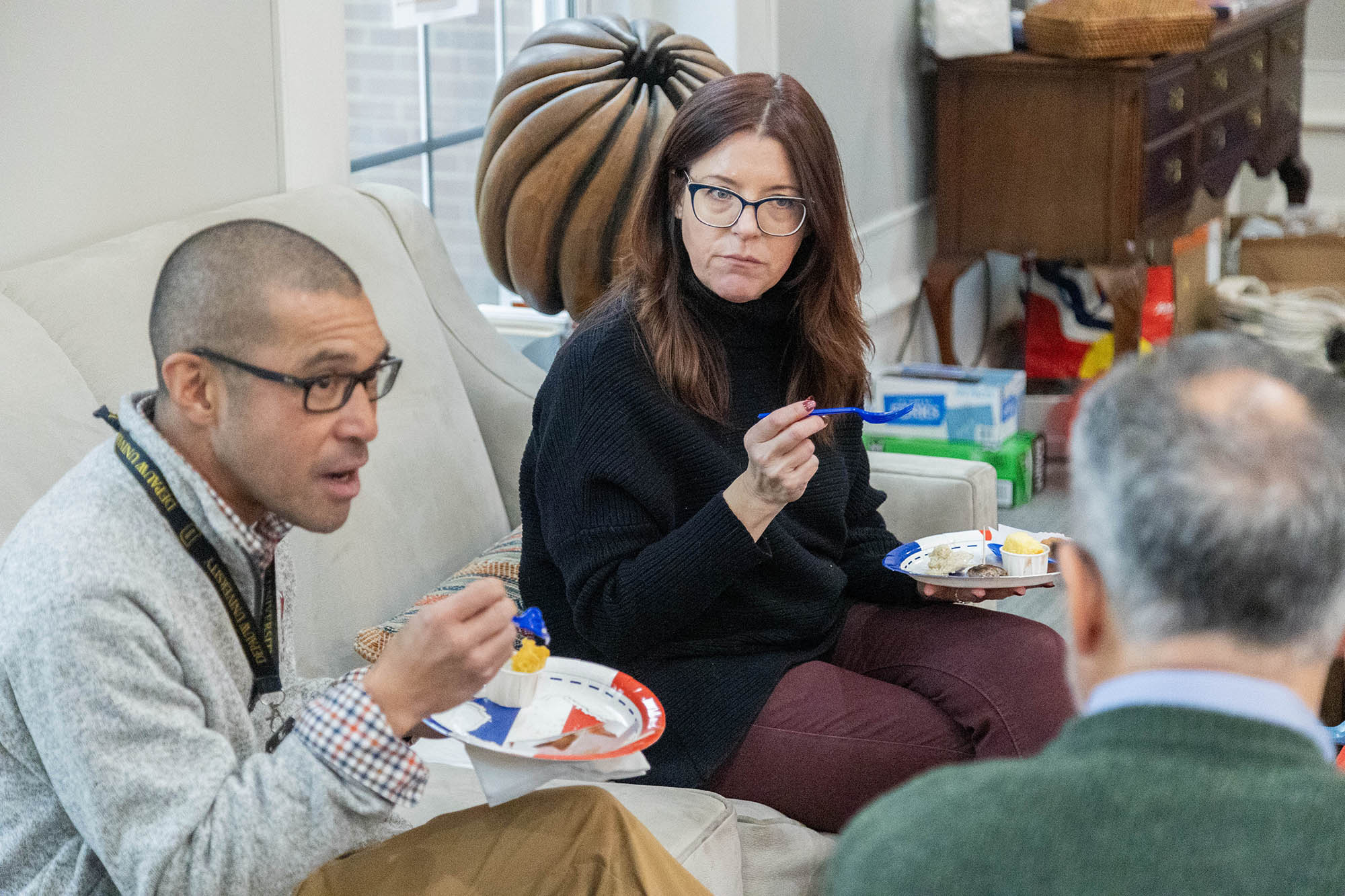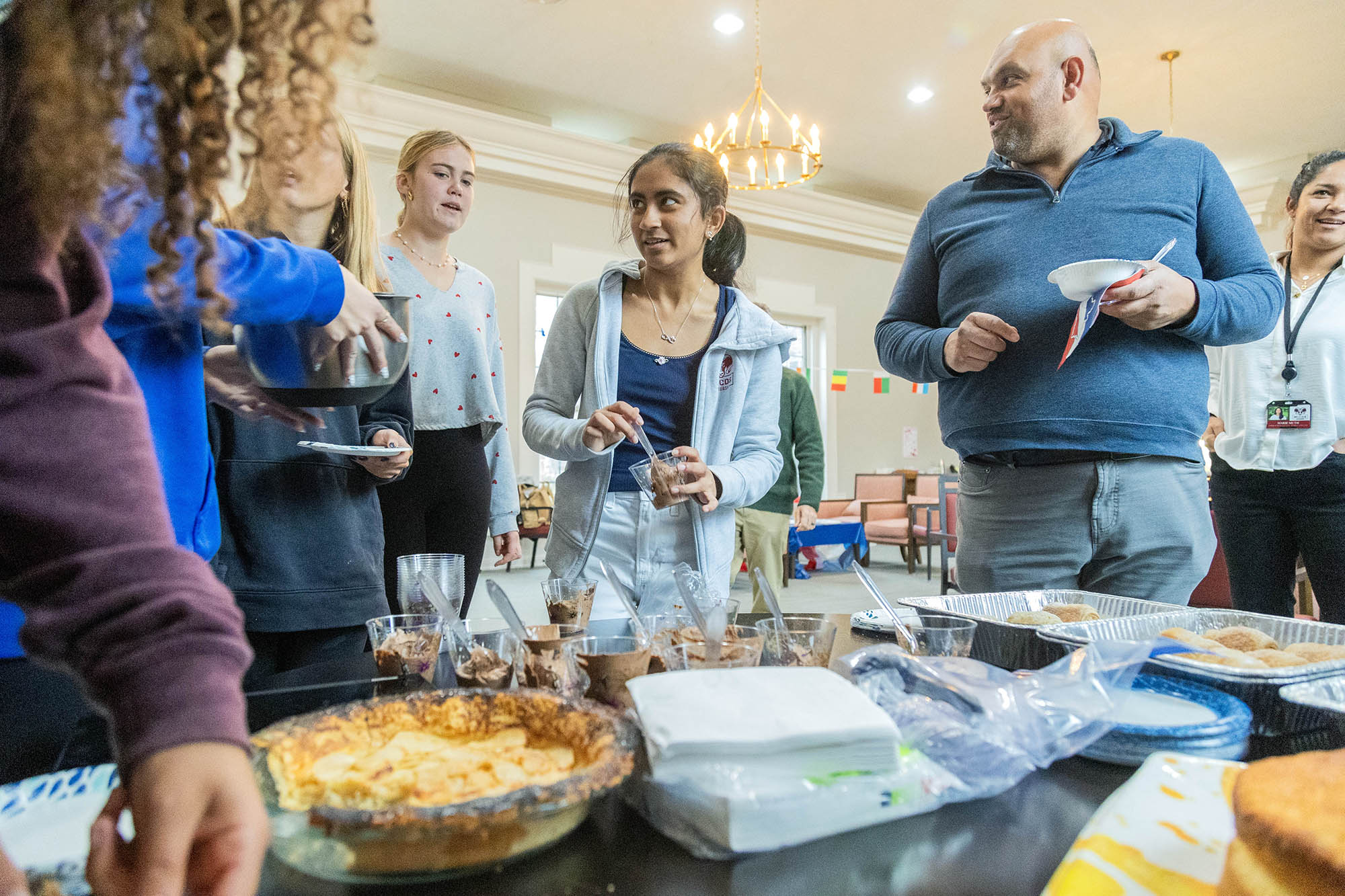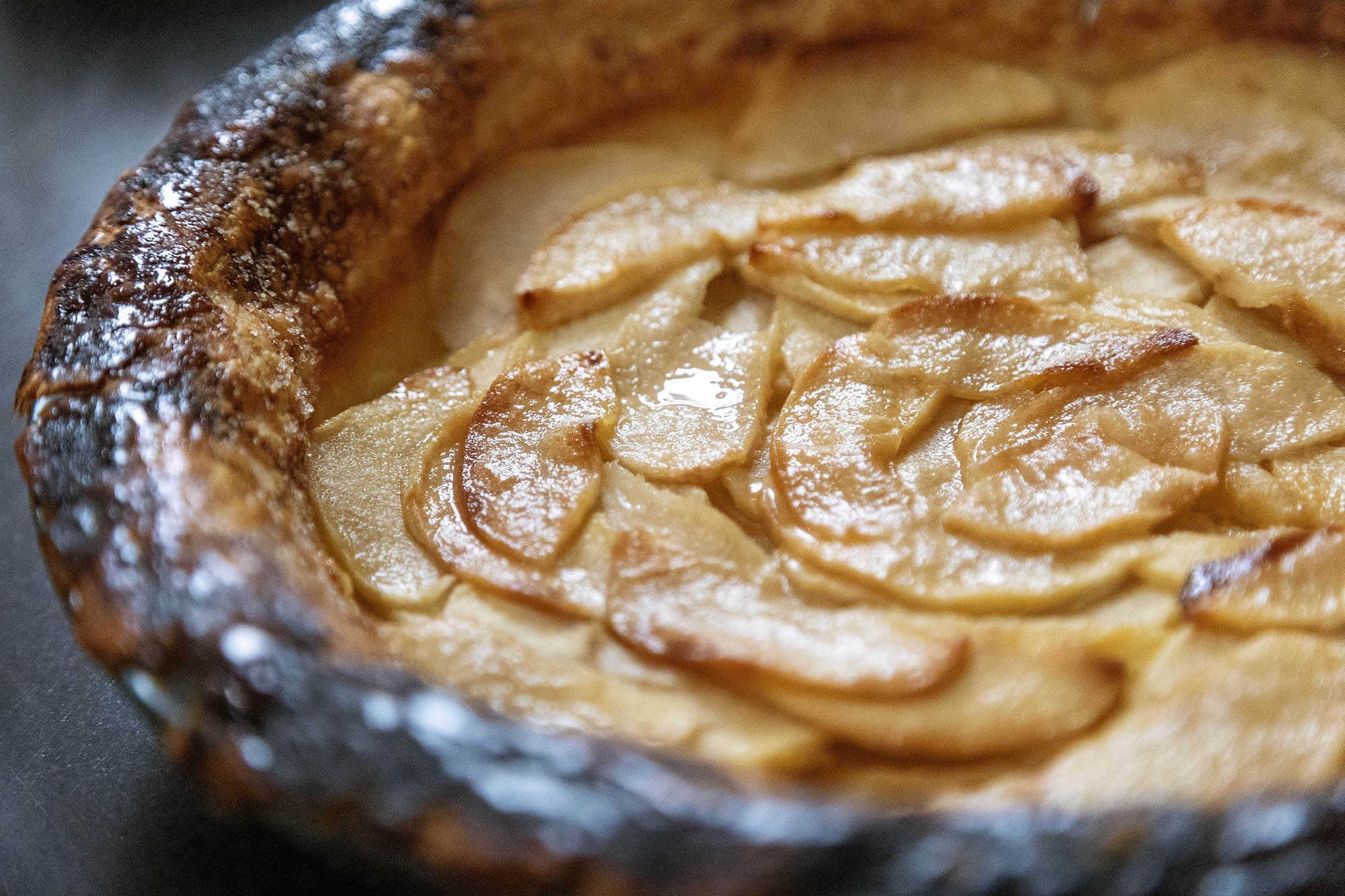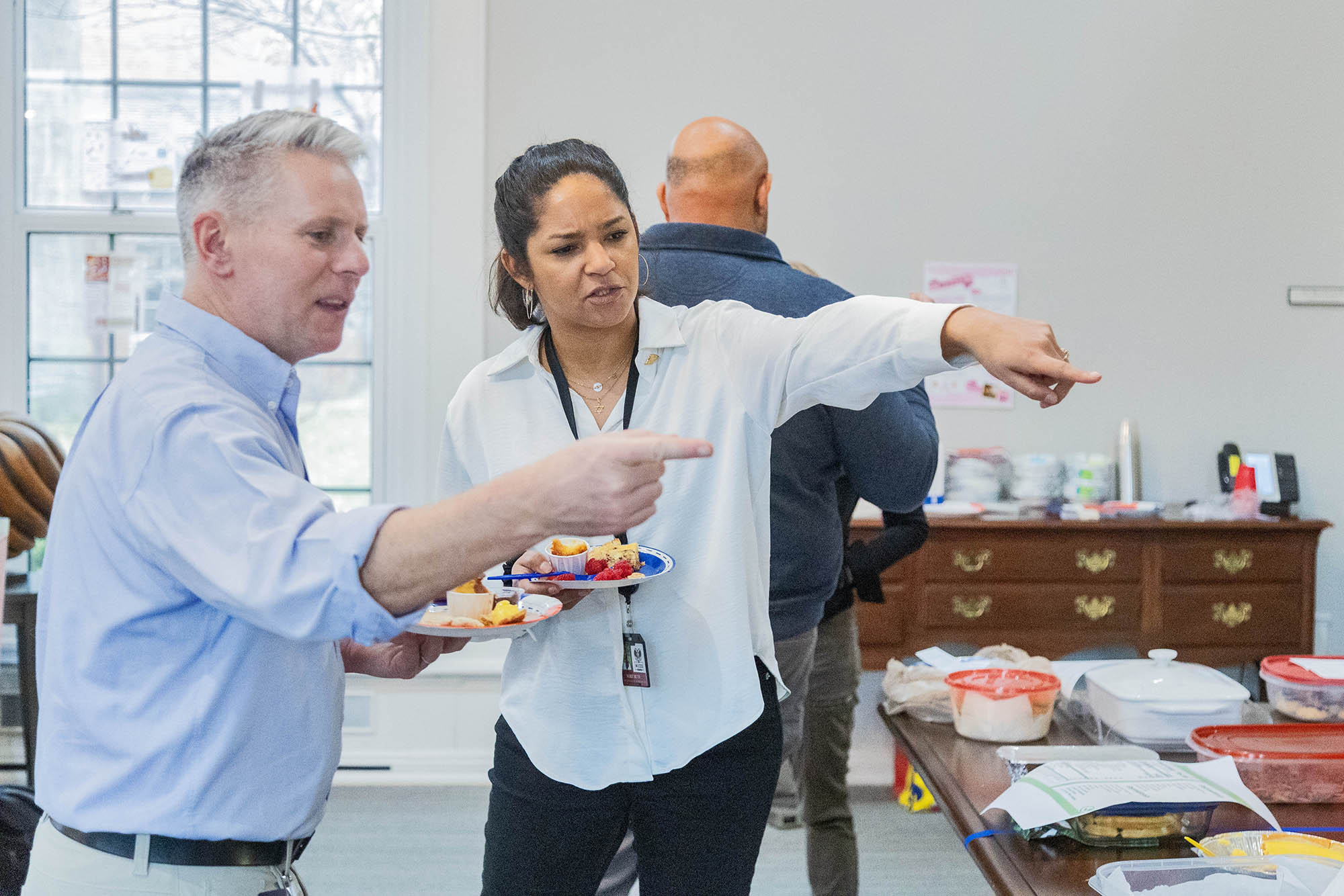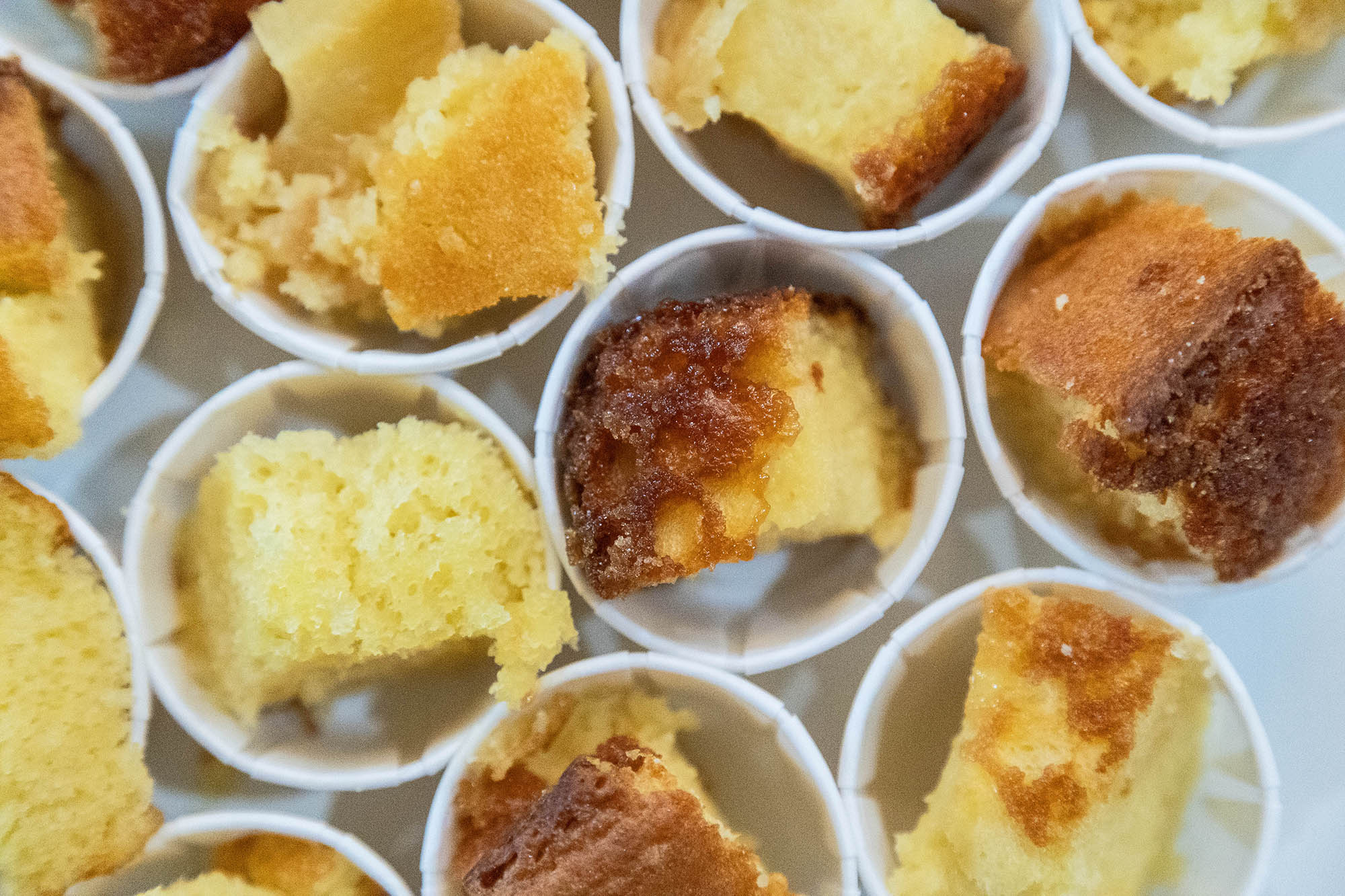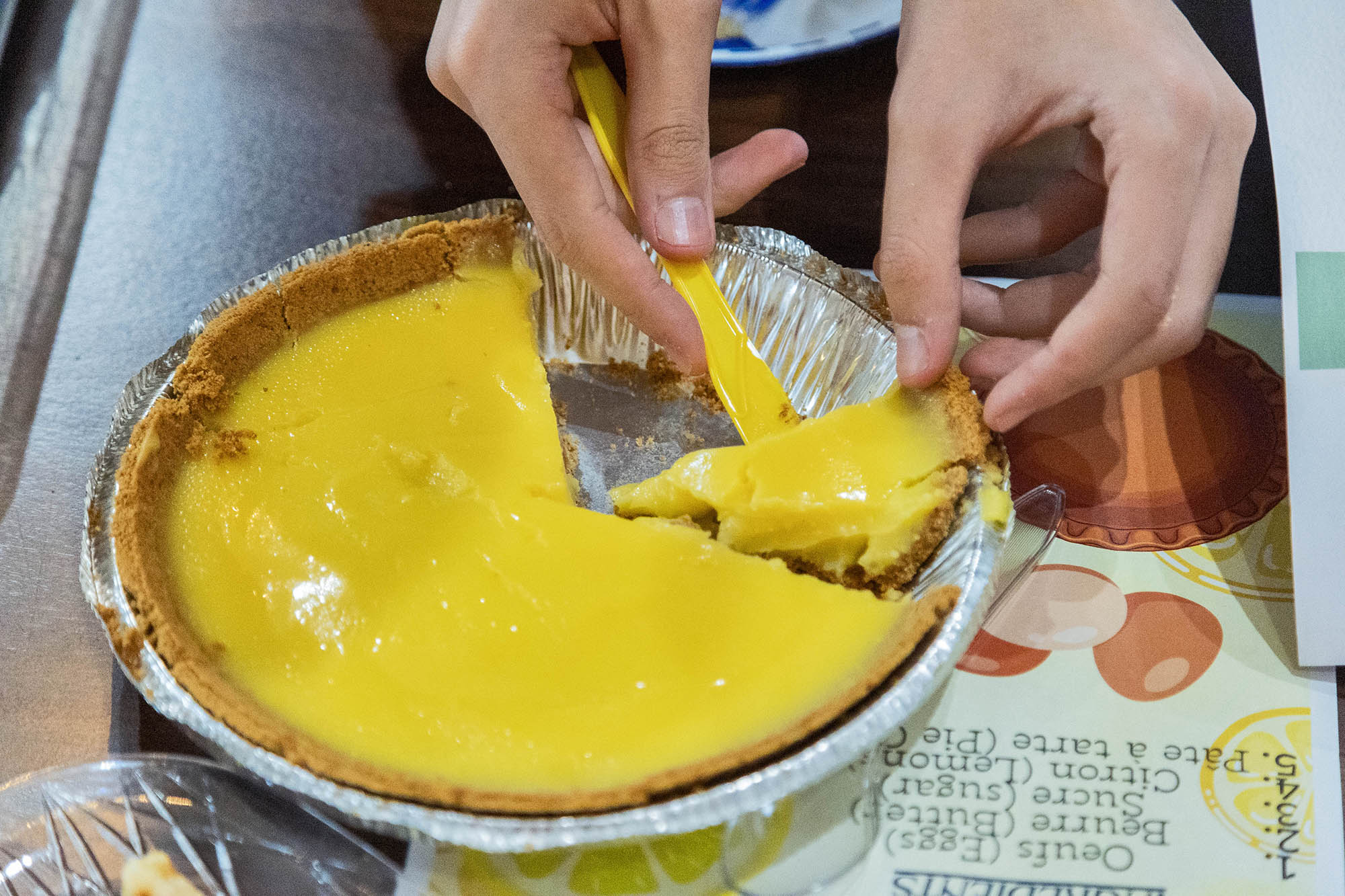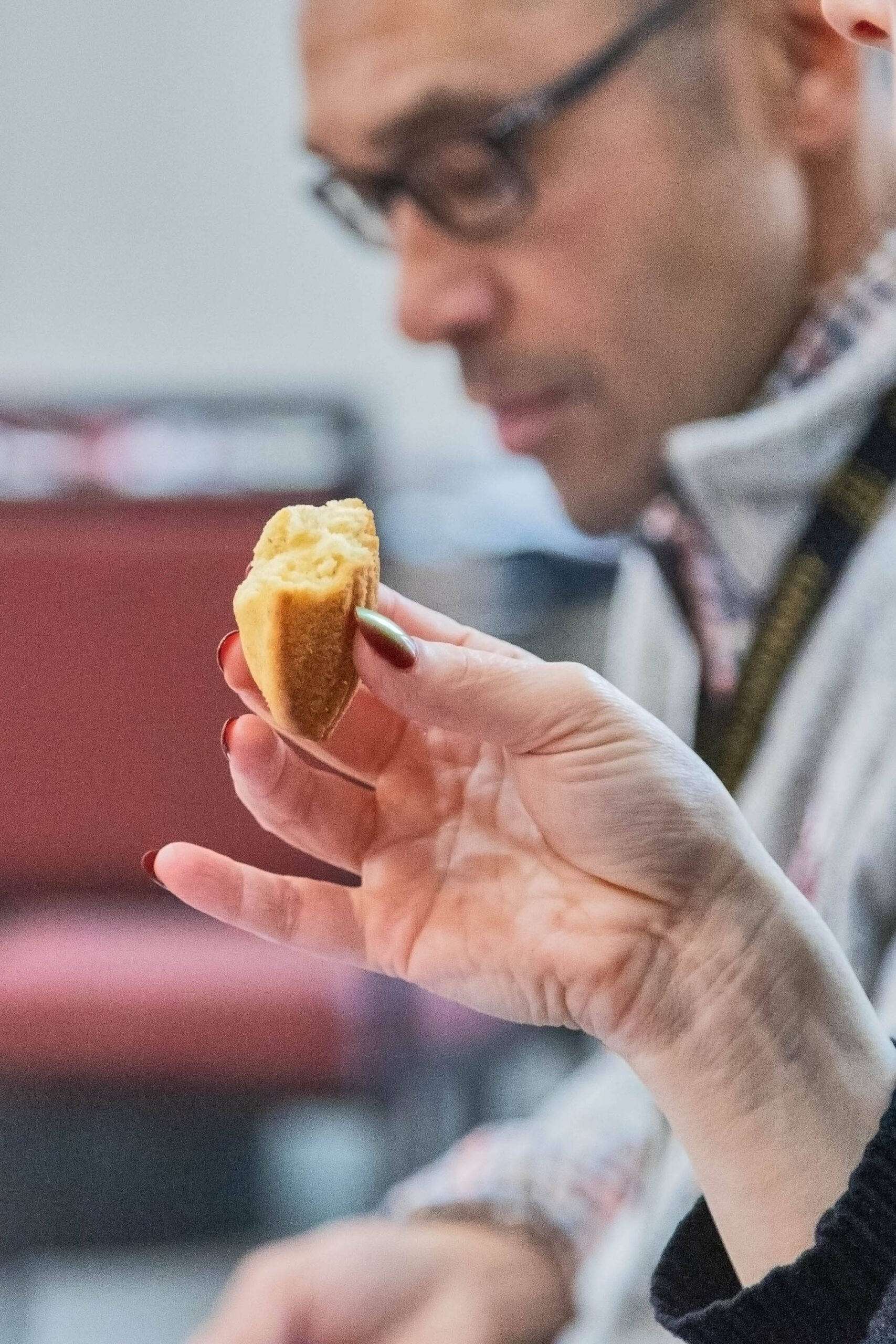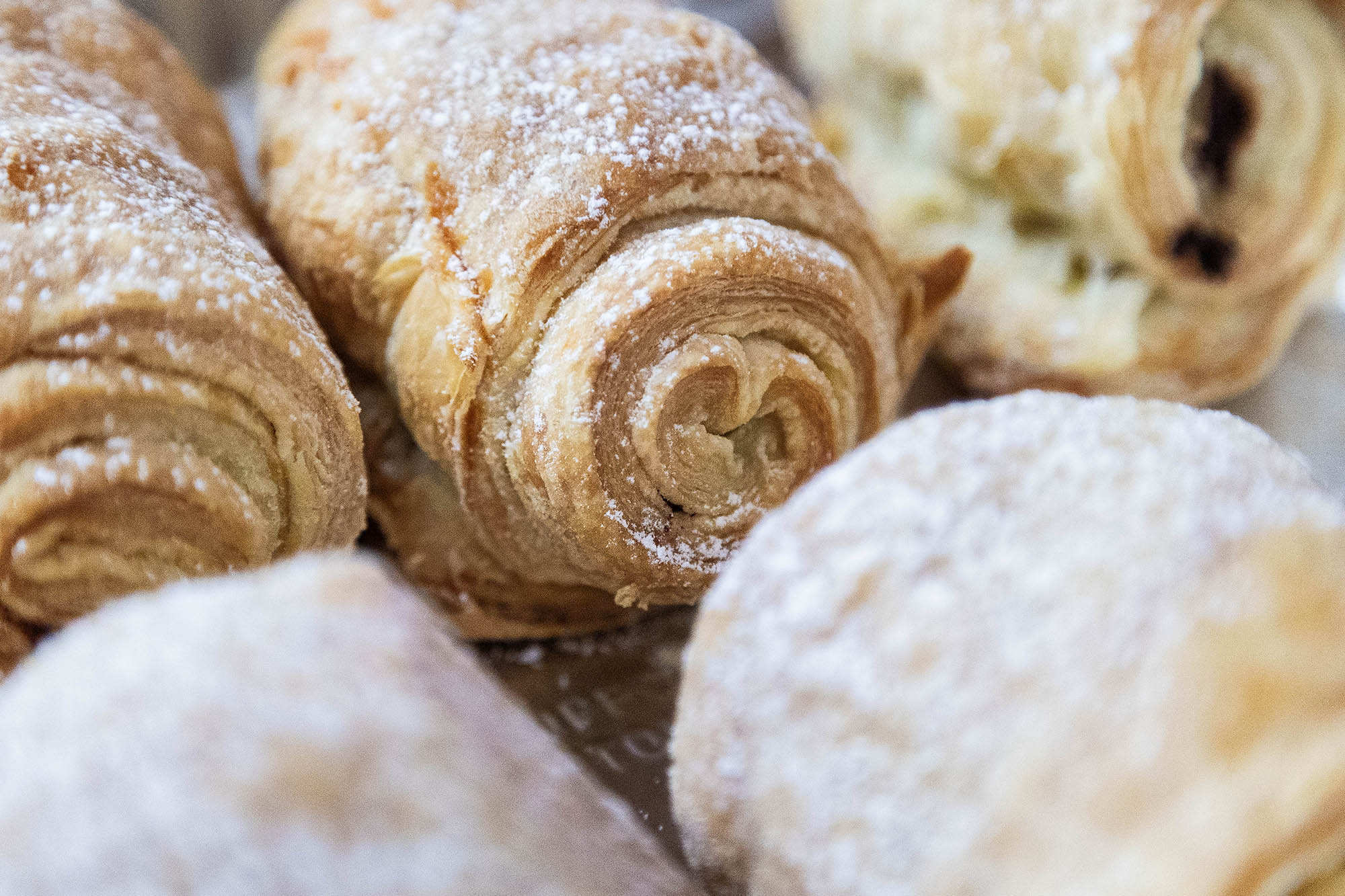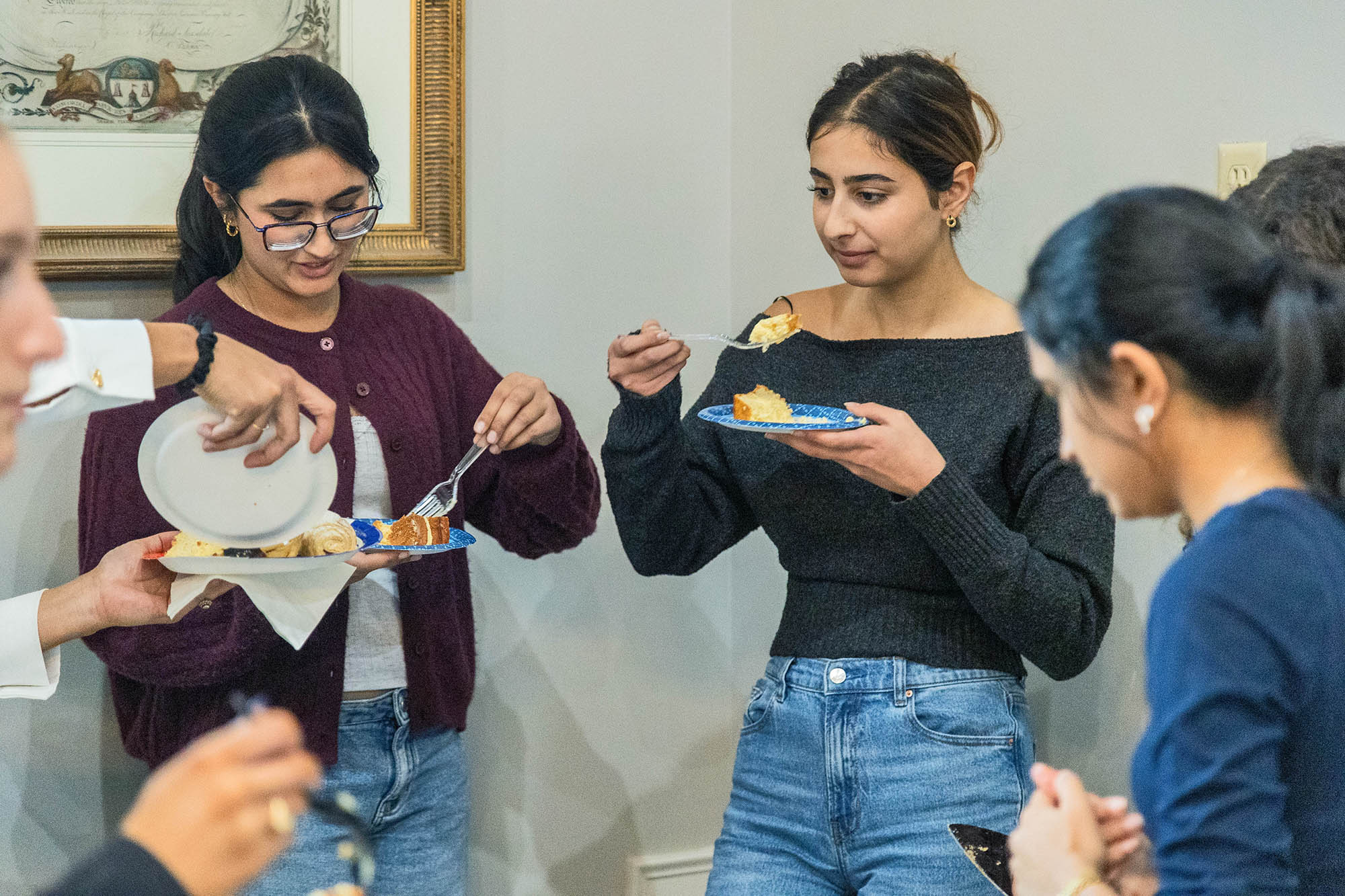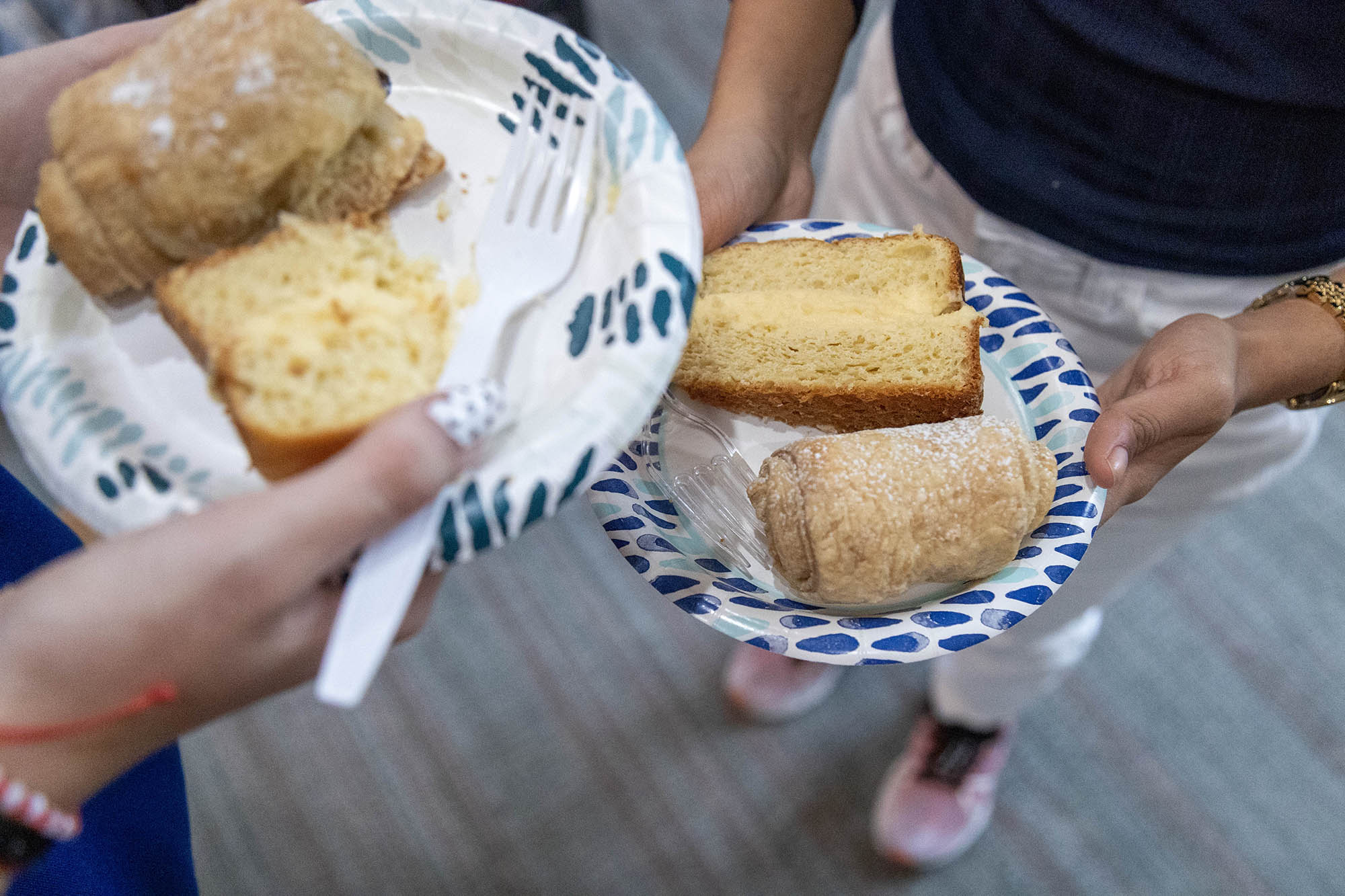Delicious smells of pastries, quiche, confections, and spiced dishes wafted through May Hall, filling the air long before lunch on the MICDS French department’s Fête de la Gastronomie day. The 10th anniversary of the fête continues to cultivate a tradition of learning and exploring new culinary landscapes through the shared experience of cooking, eating, and enjoying time together.
Globally, Fête de la Gastronomie is an annual food festival that celebrates France’s culinary heritage through events nationwide, such as cooking demonstrations, special menus, and tastings.
The event, first held in 2011, is designed to highlight the diversity of French cuisine and the expertise that goes into its creation, from farm to table. It aims to bring the public and culinary professionals together to share the pleasure of food, a significant part of French culture that UNESCO has officially recognized as Intangible Cultural Heritage.
For this international celebration on the MICDS campus, students prepared classic dishes from France or other French-speaking regions and countries, such as North Africa and Canada, to share with their classmates. In each class, faculty and staff volunteers served as judges, awarding prizes to the junior chefs for best presentation, most delicious, most audacious, and best overall.
From Luxembourg dumplings and Senegalese sombi rice pudding to tarte au sucre and poutine, students and judges sampled the foods and enjoyed each other’s company. Students also enjoyed a rousing game of francophile Kahoot with French Indie Pop playing in the background.
Upper School Dean & French Teacher Daniel George said, “The students get excited about it and prepare over several weeks. They tell me it’s the most fun event of the year because of the food and sharing in the culture of it all. The ninth graders in the 200-level classes start by learning about Francophone countries, not actually France, and they prepare recipes and do live cooking demonstrations. As students get older, they focus more on French-specific cooking and cultural habits. And it’s not just about the food, but the way you eat. For example, in Senegal, they all eat around a communal dish, and there is hierarchy too, like who gets the best spot near the center of the dish, so students learn the concepts of family and togetherness.”
Romy Edwards ’28 and her cooking partner brought their waffle game to the event. “We wanted to make something that is uniquely Belgian,” she said. “We’ve both made waffles before, so the process was pretty smooth. Honestly, pulling the waffle out of the waffle maker is the hardest part!”
Aloco, from Côte d’Ivoire, is a plantain dish available in both sweet and savory varieties. Josh Buchanan ’29 offered both. “There was nothing too difficult about making the dish. We just had to find the plantains from a different grocery store.”
Maggie Sharp ’29 and Kinsey Burns ’29 made a Lebanese dish, kefta (also spelled ketva), which is a flavorful ground beef mixture with onions, parsley, and Middle Eastern spices, formed into patties or skewers and then grilled or pan-fried. “We wanted to do something we’ve never eaten before and wanted to choose a dish from a country that was outside of Europe to see what other cultures are like,” said Sharp. “It kind of reminds me of a burger, but with a lot more flavor in it,” said Burns. When thinking about how to define French cuisine, Sharp said, “It’s so diverse and unique compared to other cultures. Throughout the fête table, I noticed a lot of pastries, and also other dishes that were influenced by the colonization of a particular country.”
What’s changed in 10 years? George said, “The level of sophistication in cooking. Maybe it’s a pandemic thing where they all had time to learn how to cook better, and perhaps the openness towards other countries. When we first started, we saw a lot of croissants, beignets, and brioche, and it has since expanded.”
When asked about what makes French cuisine so entirely French, he said, “There is no such thing as French cuisine. It’s very regional, the Brittany region is known for crepes, Normandy for the camembert cheese, so it’s very mixed.” George added, “There is an old proverb that says, ‘When God created the world, he made France with everything: mountains, rivers, a beautiful coastline, good wine and cheese, and a perfect climate. He made it the most beautiful country. But then, to make things fair to the rest of the world, he put the French people in it.'”
From the judges’ perspective, sampling a little bit of everything is a must, whether it’s a challenging task for the 10 a.m. shift or the perfect 2 p.m. pick-me-up. Upper School History Teacher Zaven Nalbandian said, “You really have to appreciate the work that these kids do outside of the classroom. I love the effort they put into it, and they’re having fun. I saw it when they first arrived, crowding around the table and setting up their dishes.” Nalbandian’s favorite dish was the [Dous Makos] fudge from Haiti. “It was so unique, and the quiche Lorraine was outstanding. I didn’t get a taste of the kefta, but I get it at home once a week, so I’m good.”
This year’s event was Upper School Fine Arts Teacher Denise Douglas‘ second time judging. She said, “Obviously, I love eating the food. And I also like seeing my students in another area of study, watching them interact, and telling me about the food they made.” Douglas’ favorite dishes were also the quiche Lorraine and Haitian fudge, but she had a soft spot for crepes. “It’s a sentimental thing because my grandmother always made crepes. She is Croatian, so that was always a staple in our house growing up. She would put jelly on them, and they were really good. The kefta was unique; I’d never had anything like it. The flavors reminded me of something I’d find in an Indian dish. The event is just a fun way to be involved in the community outside my department and to connect with students,” she said.
Thank you, MICDS francophiles, for showcasing the diversity of French food to our school community! Bon appétit!

